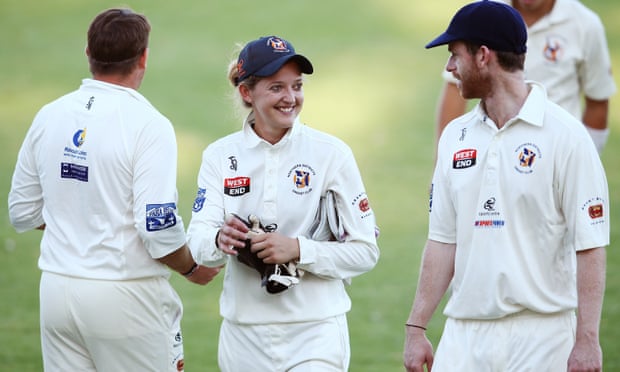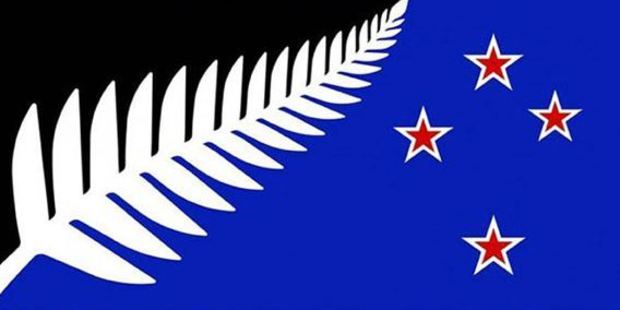-
-
-
-
-
-
-
Par Miss Lantin le 18 Octobre 2015 à 13:03

The England wicketkeeper Sarah Taylor hopes her groundbreaking debut as the first female cricketer in Australian first-grade cricket will raise the profile of women’s game and inspire others to follow suit.
Taylor spent Saturday behind the stumps for Northern Districts Jets against Port Adelaide Magpies in the South Australian Premier Competition and, on a day when bat dominated ball, declared herself satisfied.
“It was a long day, it was tough and warm out there but overall I’m happy with my performance,” Taylor told the BBC’s Test Match Special. “I was technically good and pace [on the ball] wasn’t an issue at all. I did drop a catch but we will bypass that one. I walk away with a lot of learnings but a lot of positives too.”
The 26-year-old, a veteran of eight Tests, 98 one-day internationals and 73 Twenty20s, lined up alongside Leicestershire’s captain, Mark Cosgrove, and the former Hampshire and Sussex batsman Joe Gatting, spending 81 overs in the field on the first of two days as the Magpies reached 227 for three.
With her England team-mate Kate Cross having become the first woman to turn out in the Central Lancashire League last summer, Taylor believes more could follow in their footsteps by penetrating the men’s game at club level. “I would like to think I won’t be the last woman to play in a men’s game. I think I’ve got to look at myself and be proud of what I have achieved – and thank the Jets for my chance.
 votre commentaire
votre commentaire
-
-
-
Par Miss Lantin le 24 Août 2015 à 13:23

St Ignatius Riverview has five per cent of students from language backgrounds other than English.
Some of Sydney's most prestigious private schools have become Anglo-Australian ghettos as the education of high school students across the city is increasingly segregated along ethnic lines.
Students with a language background other than English made up 52 per cent of all enrolments in Sydney's public high schools in 2011 while the share in independent schools was just 22 per cent, research by the University of Technology Sydney's Dr Christina Ho has found. The proportion in Catholic schools was 37 per cent. "Schools are becoming more segregated in terms of both class and ethnicity," Dr Ho said. "More and more students are going to schools that do not represent the range of people in their neighbourhood, but rather a select group."
The segregation trend was very pronounced on Sydney's lower North Shore, home to some of Australia's highest fee private schools. Ho identified 11 private high schools in the area where the proportion of students from language backgrounds other than English was at or below 20 per cent. Queenwood School for Girls in Mosman had the lowest share (2 per cent) followed by St Ignatius College Riverview in Lane Cove (5 per cent) and Monte Sant' Angelo Mercy College in North Sydney (6 per cent).
However, in two selective public high schools in the area - North Sydney Boys and North Sydney Girls - the proportion of students from a language background other than English was above 90 per cent. At the nearby comprehensive public schools Chatswood High and Willoughby Girls High the proportion was 76 per cent and 57 per cent respectively. "You can walk between some of these schools in a few minutes and yet one is like a white bubble and the other is like a non-white bubble," Dr Ho told the Herald. "Its astounding that this can be happening in the same suburb like say, North Sydney."
Dr Ho raised concerns about the lack of cultural diversity in north shore private schools because they play such an important role in educating the children of Australia's cultural and political elite, and are sites where powerful networks are forged. "The fact that there are so few students from language backgrounds other than English raises questions about the ethnic exclusivity of these networks, with ramifications for the composition of Australia's future political, cultural and economic leaders," she wrote in an article titled 'People like us': School choice, multiculturalism and segregation in Sydney published in The Australian Review of Public Affairs. The Prime Minister, Tony Abbott, and several members of the Federal cabinet including Treasurer Joe Hockey and Agriculture Minister Barnaby Joyce attended private schools identified in the research.
Dr Ho's research, which used data published on the MySchool website, also revealed a significant difference in the ethnic make-up of private and public schools in the Burwood-Strathfield region. Public high schools in that area had an average of 80 per cent of students with a language background other than English while private schools had about half that figure at 42 per cent. Dr Ho said government policies to promote school "choice" had been the main factor driving ethnic segregation.
"In a multicultural society like Australia, it is unnatural and unhealthy for our schools to be so ethnically divided," says Dr Ho. "In private schools that are overwhelmingly Anglo-dominated, students are not being given sufficient opportunity to develop the cross-cultural awareness and skills that can only be developed through everyday encounters and friendships with people from other backgrounds."
Dr Ho also said the very high proportion of non-Anglo students in selective high schools "raised questions" about whether they were being shunned by Anglo-Australian families.
 votre commentaire
votre commentaire Suivre le flux RSS des articles de cette rubrique
Suivre le flux RSS des articles de cette rubrique Suivre le flux RSS des commentaires de cette rubrique
Suivre le flux RSS des commentaires de cette rubrique



